Shimon Peres: Long legacy of Israel's elder statesman
- Published
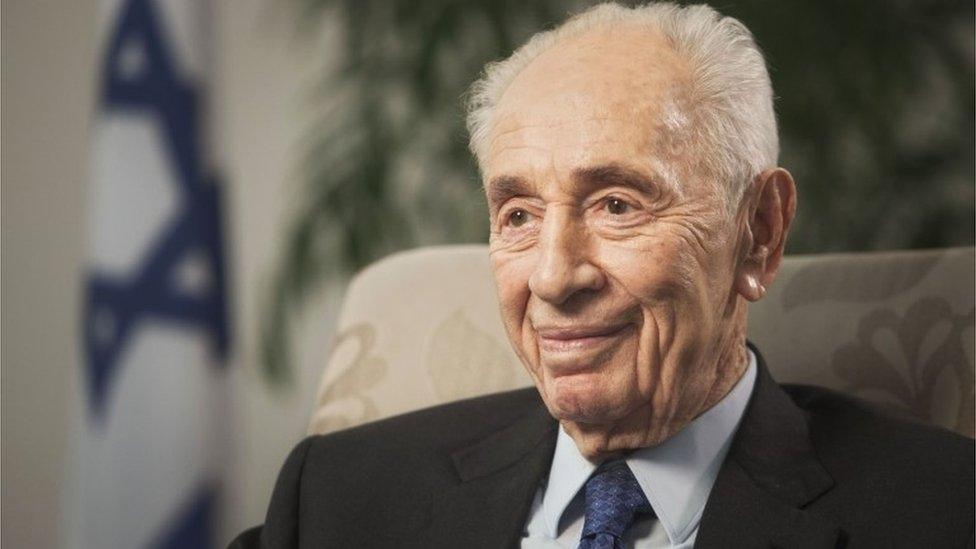
Shimon Peres held almost every major public office since the founding of the State of Israel
Shimon Peres was the last of the generation of politicians who founded Israel in 1948 to leave the public stage.
But even though his life of public service stretched over 70 years, it is not difficult to pick out the highlight.
In 1993 he was one of the group of politicians including Bill Clinton, Yasser Arafat and Yitzhak Rabin who signed the Oslo Accords - Israel's first peace deal with the Palestinians.
It was not to live up to its early promise - but in those optimistic days no-one articulated that promise better than he did.
"We live in an ancient land," he told a watching world at a signing ceremony on the White House lawn.
"Our land is small, so must our reconciliation be great. I want to tell the Palestinian delegation that we are sincere... Let all of us turn from bullets to ballots, from guns to shovels. We shall pray with you. We shall offer you our help in making Gaza prosper and Jericho blossom again.
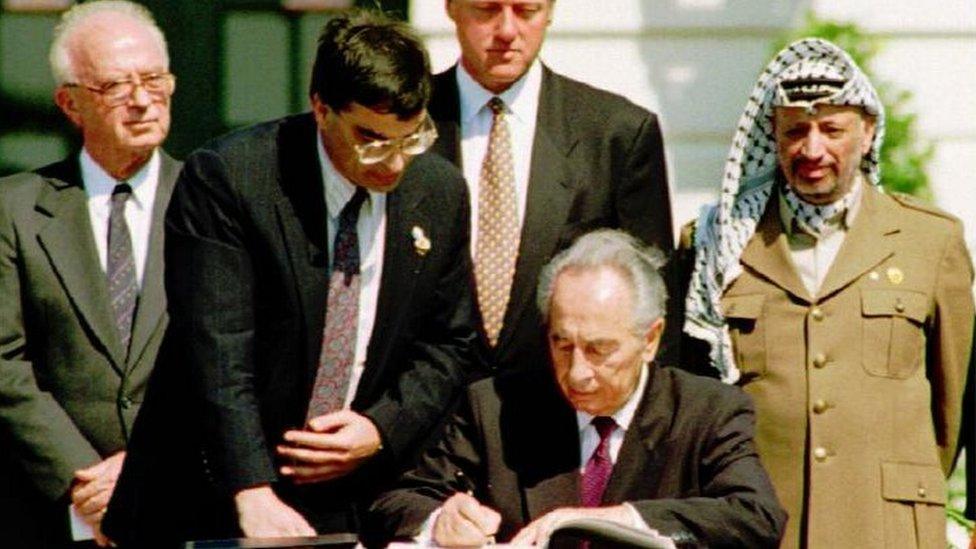
The accords signed with the Palestinians never translated into long-term peace
"As we have promised, we shall negotiate with you a permanent settlement, and with all our neighbours a comprehensive peace peace for all."
That speech perhaps crystallised the essence of how Shimon Peres will be remembered on the international stage - certainly how he would have liked to be remembered - as a hopeful and articulate Israeli advocate for peace.
Elusive goal
But although Shimon Peres spoke often about his vision for a Middle East in which Israel could co-exist in harmony with its Arab neighbours, sharing water and trading freely across open borders, he did a lot to make sure that Israel built powerful armed forces to make it strong in the meantime.
In the early part of his career, he was an important official negotiating deals with foreign arms suppliers and conducting the secret negotiations that made Israel a nuclear power.
When he was given the Nobel Peace Prize for his work on the Oslo Accords he spoke philosophically about the Israeli military strength which he did so much to build, saying simply: "The wars we fought were forced upon us. Thanks to the Israel Defense Forces, we won them all, but we did not win the greatest victory that we aspired to: release from the need to win victories."
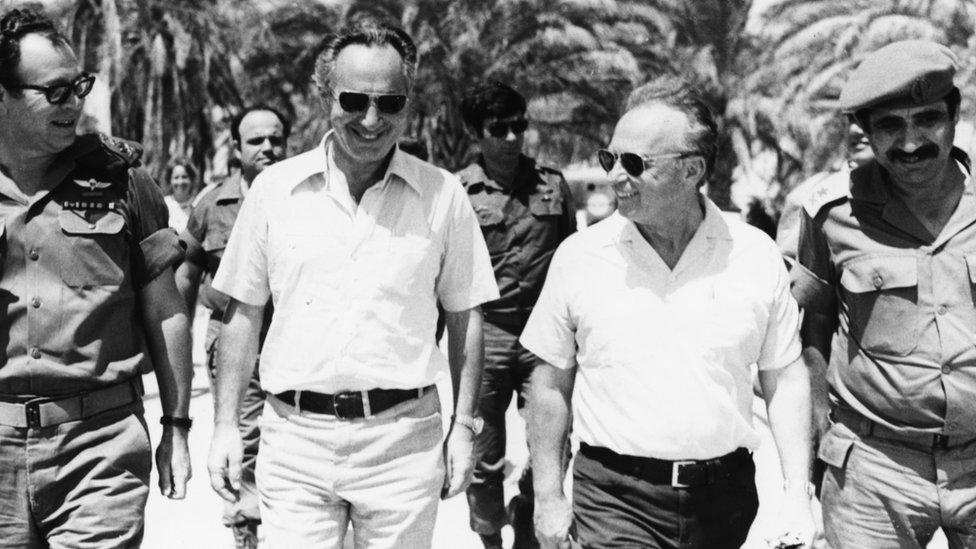
Peres (second left) did a lot to make sure that Israel built powerful armed forces
Perhaps because he spoke so often and so well about peace Shimon Peres enjoyed a degree of acclaim on the international stage that never quite translated into domestic political success.
He never won an election outright but served twice briefly as prime minister, including the occasion on which he took office in place of Yitzhak Rabin who was assassinated by a right-wing Israeli extremist in 1995 because of his work on a peace deal with the Palestinians.
In that moment Shimon Peres found the words to articulate what many Israelis felt.
"You can kill a body," he said, "but you cannot kill the great and noble idea of peace."
At a rally to mark the 20th anniversary of the assassination, he was still arguing for the same cause, dismissing right-wing criticism of those who work for peace with the Palestinians as "delusional".
Entebbe moment
There was hardly a ministerial portfolio he did not hold over the long decades in public life and hardly a major chapter in the national story in which he did not play some kind of role.
He was never a military man like many of his rivals but he was serving as minister of defence in 1976 when Palestinian and German hijackers diverted a plane-load of civilians en route from Athens to Paris to Entebbe in Idi Amin's Uganda.
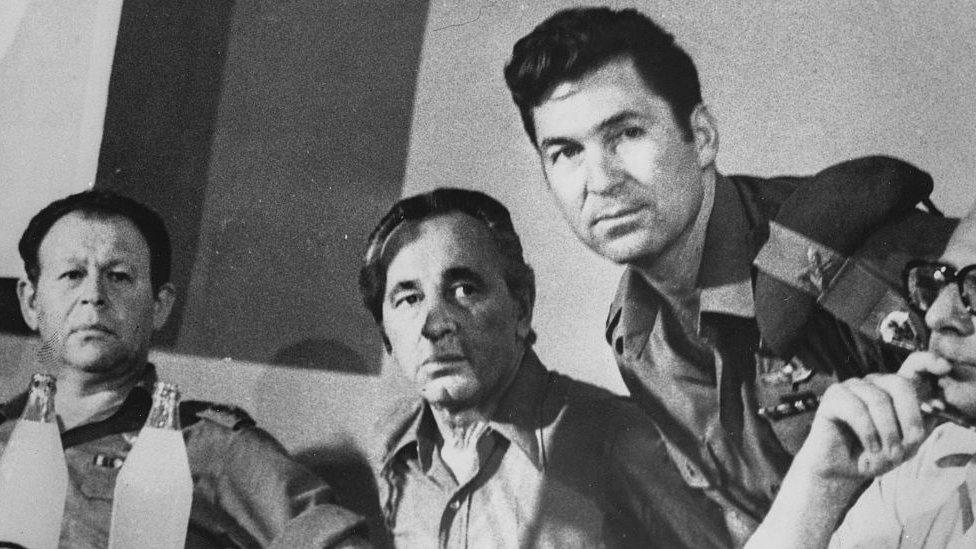
Peres (centre) was defence minister when Israelis were taken hostage, then rescued, at Entebbe
When Israeli commandos stormed the airport terminal, killing the hijackers and freeing almost all of the hostages it fell to Peres to put Israel's joy and relief into words.
He spoke for the nation when he said: "This was an unprecedented operation since it was the longest from the point of view of range, the shortest from the point of view of time and the most daring one can imagine."
Tough stance
As times changed over the course of his long political life, Shimon Peres in many ways changed with them.
The man who had been a member of a government that approved the building of Jewish settlements in the territories occupied in the 1967 war came to see them as an obstacle to a peace deal.
But he never wavered from his view that it did not contradict his aspirations for peace to argue that Israel had to stand ready to bring its military strength to bear against enemies like the Palestinian militant organisation Hamas, which dominates the Gaza Strip.
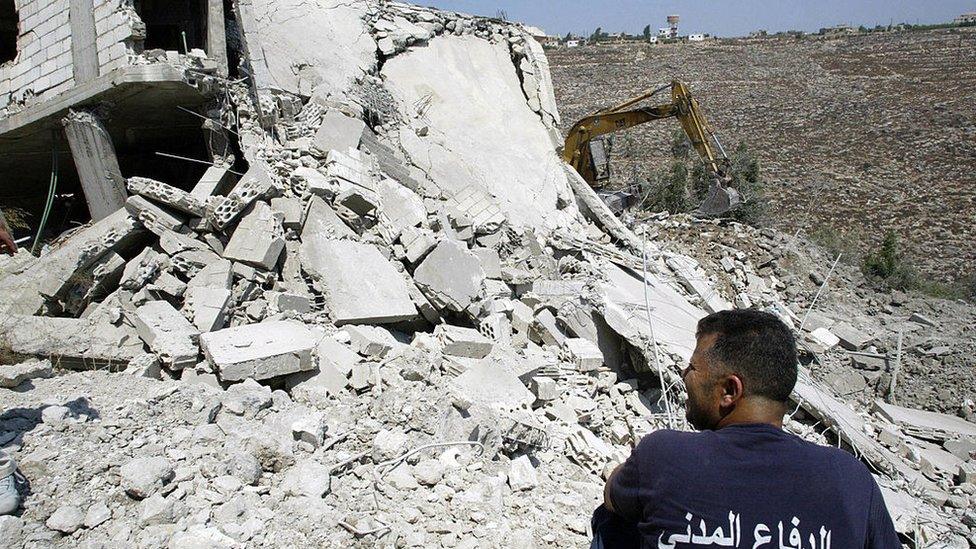
A military campaign ordered by Peres against Hezbollah caused massive destruction
"We are determined," he once said, "to fight Hamas and the Islamic Jihad without any hesitation and without restriction, just as we are determined to work for the peace process."
When the Lebanese militant group Hezbollah escalated rocket-fire on northern Israel in 1996, as caretaker prime minister Shimon Peres ordered a military campaign against in response, unleashing a 16-day offensive in which hundreds of Lebanese civilians were killed or injured, and hundreds of thousands displaced.
The so-called Operation Grapes of Wrath saw scores of civilians killed in a single incident when Israeli shells hit a UN compound where they were sheltering, drawing widespread condemnation.
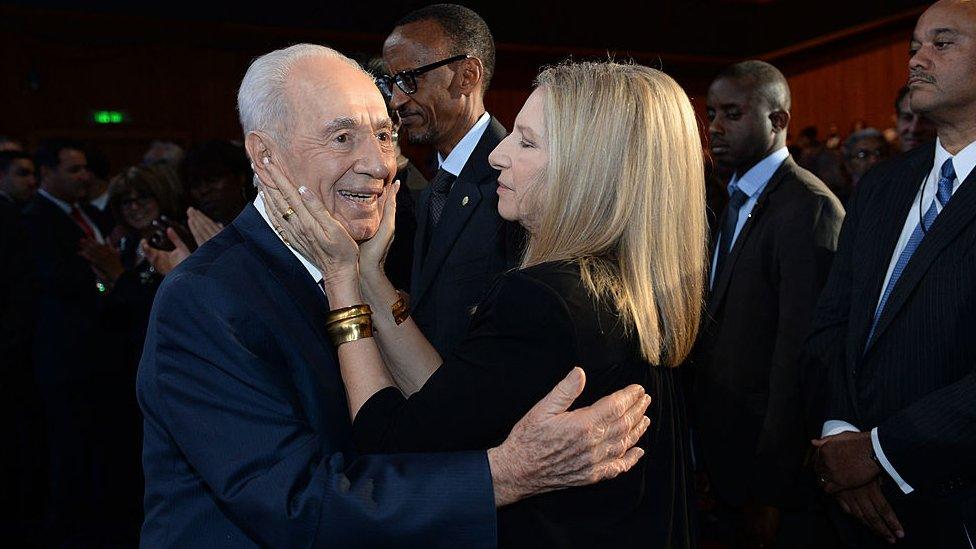
Peres became the world's oldest head of state when he turned 90 in 2013
The long career of Shimon Peres had an extraordinary final act - he was still in the largely ceremonial post of president when he passed his 90th birthday, making him at the time the oldest head of state in the world.
As a kind of grandfather to the nation he loved he enjoyed at last the popular acclaim which had eluded him earlier in his career.
- Published28 September 2016
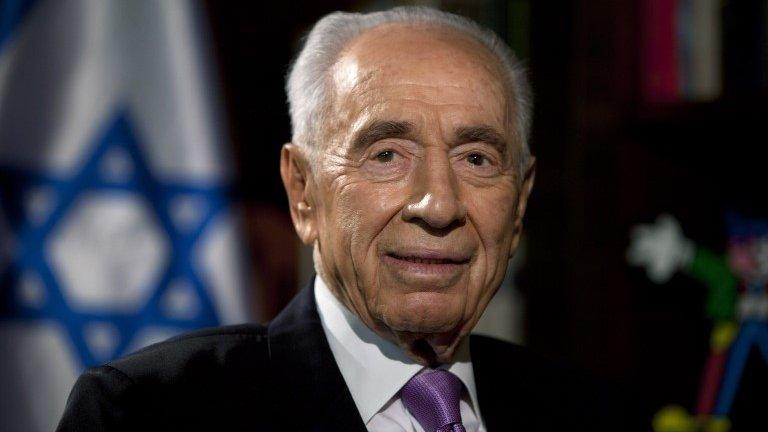
- Published3 August 2013
- Published5 July 2022